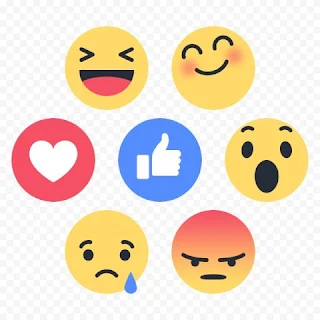PREMISE
Without a doubt, social media is theoretically and partly in practice a useful tool for communication and for maintaining and developing positive relationships. However, before making any generalization, one must consider human ambiguity, hypocrisy, and self-destructive tendencies, which coexist with human better qualities. No discussion of human behaviour can afford to overlook these fundamental negative and destructive traits.
Every individual is born with both constructive and destructive impulses, long before cultural or civil influences take shape. These energy patterns can only be activated, channelled, and directed through training in reason, guided by universal human and ecological values, to build a less conflict-ridden and more peaceful world. Otherwise, positive traits remain dormant, while negative ones prevail.
This is why social media often becomes a negative and destructive space when universal values such as self-respect, respect for others, and senses of shame and modesty are ignored. One of the most embarrassing and harmful behaviours social media has normalized is false yet polite communication, where discomfort and negative emotions are concealed behind symbols of approval: the Roman thumbs-up, little hearts, hugs, and stars.
"What follows is a reflection on my own experiences and those of my friends. These observations do not discourage us from maintaining our personal lifestyles but help us better understand the reality we live in".
Emoji Behind False Intimacy and Friendships
There are countless ways people speak ambiguously saying one thing while meaning another, masking true feelings behind politeness or outright fakery. This false courtesy has found new life through technology, particularly in social media communication. It is both painful and embarrassing when technology itself exposes the deception.
For example, if someone reacts with a thumbs-up or heart to a shared link whether it’s an article, comic, or image, without even clicking to view it, the sender can easily detect the insincerity. To genuinely engage with content, one must at least open it. When the link remains unclicked, the hollowness of the reaction becomes obvious. This is not just embarrassing but calls into question the authenticity of human connections.
Of course, this should come as no surprise. If people struggle to form meaningful friendships in real life, how can they possibly foster genuine bonds online?
Unfortunately, I have encountered this kind of deception repeatedly thumbs-up, stars, and hug emojis with empty and fake compliments that, in reality, signify nothing but indifference or even concealed disdain.
I often share links to my new comic pages or articles with so-called "friends" on my list. Frequently, I receive thumbs-up or star reactions that do not reflect reality because they never even clicked the link. They didn’t spend a few seconds glancing at the content, let alone engage with it meaningfully. Instead, they offered a hollow, fake polite gesture.
This confirms that our digital society is merely replicating the same dysfunctional communication patterns of the real world. Social media provides the perfect platform and the necessary tools for people to continue living shamelessly fake yet superficially polite lives. In this vast technocratic digital society, there is little regard for true respect for oneself and/or for others.



Quante verità!
ReplyDeleteLa riflessione di spostare il negativo dallo strumento sociale alla persona, è illuminante.
Ritornando al mio passato, rivedo relazioni socio- emotive semplici, ripetitive e numericamente ristrette ai parenti
L'esperienza dei social attuali, mi allarga il gruppo di "conoscenti"...che ddifficilmente permettono una profonda conoscenza dell'altro.
Riconosco nelle tue riflessioni tanta verità e rifletto sulla differenza comunicativa tra ...parole e ...immagini.
Grazie ❤️ per svermi coinvolto
Grazie, Lina Peppe, per il tuo commento. Come hai notato, non sono gli strumenti in sé a poter essere colpevolizzati o lodati, ma l’utente che li utilizza con intenti costruttivi o distruttivi. Anche in questo caso, né le nuove tecnologie né i social media rappresentano il male di per sé, ma sono gli utenti a renderli tali.
ReplyDeleteÈ vero, come dici spesso i familiari spesso mantengono rapporti superficiali, quasi "diplomatici". Grazie al tuo spunto, ora inizierò a scrivere una riflessione sul concetto di “diplomazia”.
La differenza tra parola e immagine è un dibattito vasto, e a riguardo scriverò un’altra riflessione quando avrò tempo. Grazie ancora!
I agree 100% with you. You are explaining the real situation of our world. Bravo.
ReplyDelete